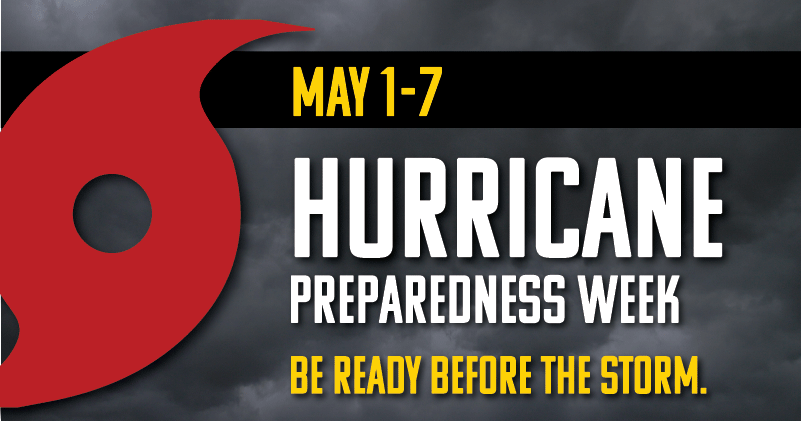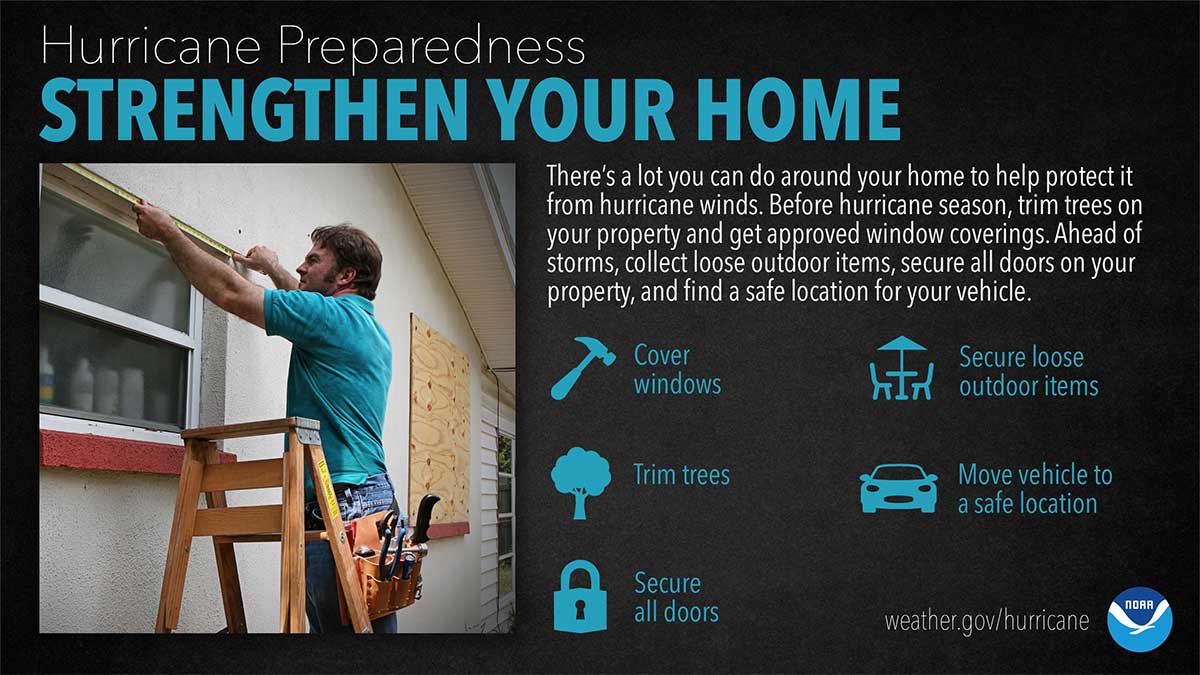
Topics
If you plan to ride out the storm in your home, make sure it is in good repair and up to local hurricane building code specifications. Many of these retrofits do not cost much or take as long to do as you may think. Have the proper plywood, steel or aluminum panels to board up the windows and doors. Remember, the garage door is the most vulnerable part of the home, so it must be able to withstand the winds. Various how-to videos for protecting your home are available at FLASH.org.
Here are some tips for preparing and strengthening your home for tropical storms and hurricanes:
- Keep trees around hour home trimmed well before a storm to prevent damage from broken branches.
- Shop now for tested and approved window coverings to put up when a hurricane approaches.
- Bring loose outdoor items, such as patio furniture, inside. They can blow around and cause damage to homes.
- Secure all doors on your property. Remember that garage doors are the usually the most vulnerable.
- Move your car inside a garage or to another secure location.
- For more information about strengthening your home, please visit FLASH.org.
Tornadoes
ANY tropical system is capable of producing tornadoes! Tropical tornadoes are often short lived but they can produced enhanced areas of damage. Sometimes these tornadoes can occur in the outer rain bands, well ahead of the center of the storm. In 2019 Hurricane Dorian produced an EF-2 tornado in Emerald Isle, NC with estimated winds of 115 MPH. In 2018, Hurricane Florence produced 27 tornadoes in North Carolina! To prepare for the possibility of tornadoes it’s important to have multiple ways to receive warnings, so you can seek shelter quickly if a warning is issued for your area.
Identify Your Trusted Sources of Information
NOAA’s National Hurricane Center is your official source for hurricane forecasts and the issuance of hurricane watches and warnings. Your local NOAA National Weather Service forecast office provides information regarding the expected impacts from the storm for your area. Emergency managers will make the decisions regarding evacuations.
Organizations such as FLASH make disaster safety recommendations. And the media outlets will broadcast this information to you. All work together to be your trusted sources, especially for those less able to take care of themselves.
Here are some additional suggestions regarding where to get trusted tropical storm and hurricane information:
- Television: Tune in to your trusted local news source.
- Phone: Access mobile.weather.gov on your mobile phone and get Wireless Emergency Alerts.
- Radio: Receive forecast information and news on your NOAA Weather Radio.
- Social Media: Follow official government agencies, trusted media partners, and share critical information with friends and family.
- Computer: Access information from weather.gov, ready.gov, readync.org, and flash.org.

